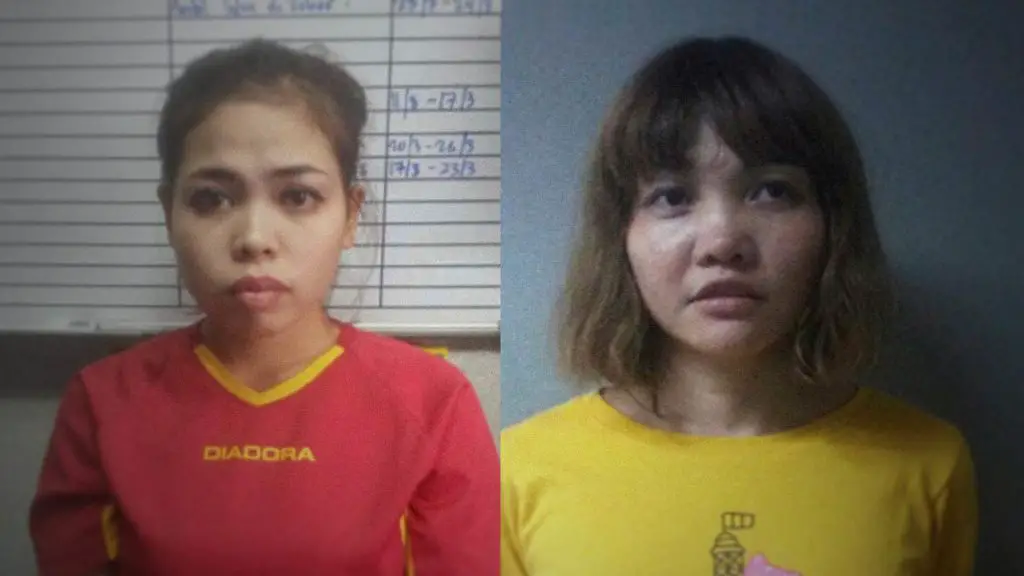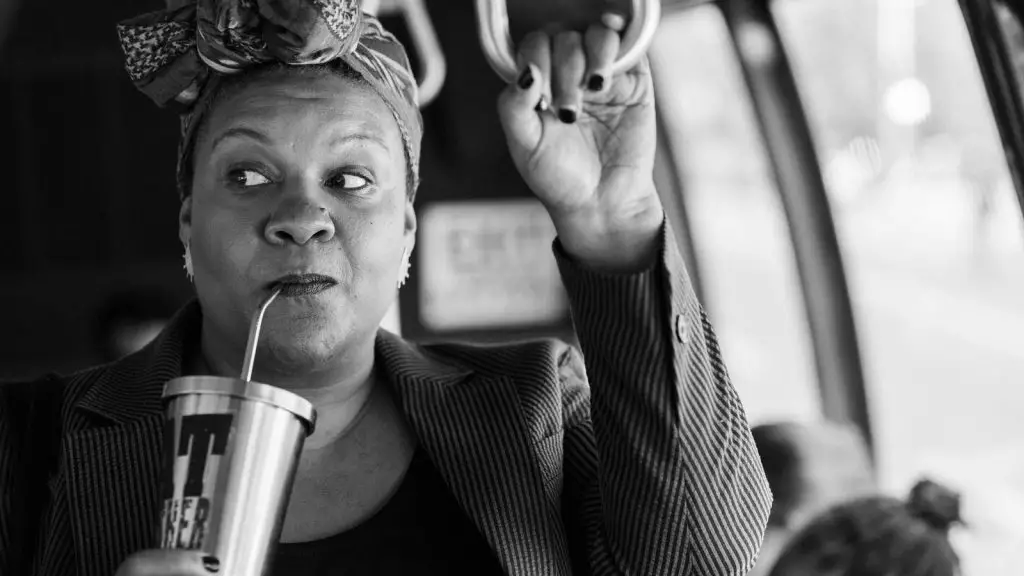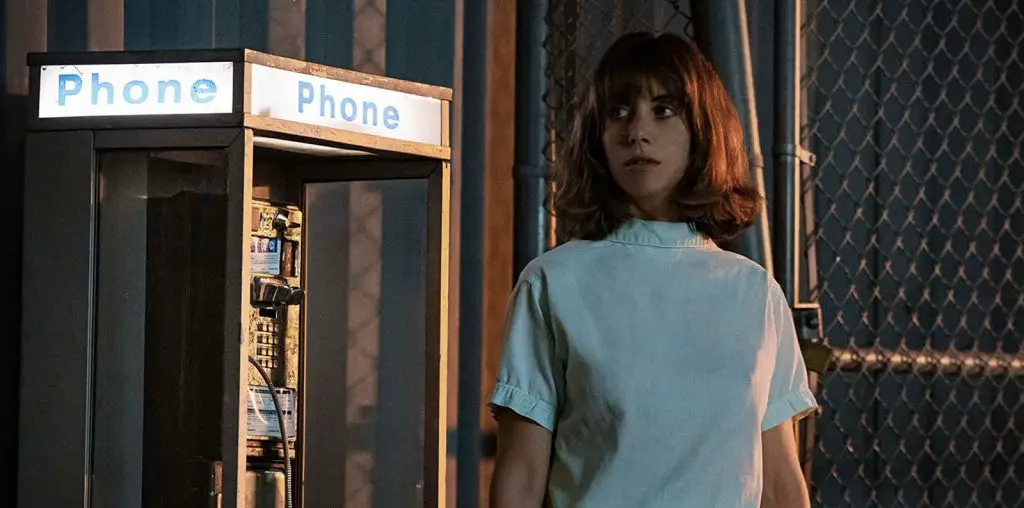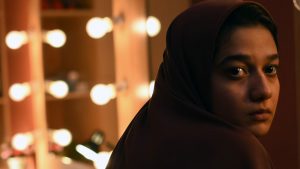
NEW TO VIRTUAL CINEMAS! Yalda, a Night for Forgiveness is an Iranian film by Massoud Bakhsand and begins on the night of Yalda, during the winter solstice, which is a traditional Iranian festivity. Set primarily in a television studio during the filming of a live show, the movie unfolds almost in real-time. We are introduced to a young woman, the protagonist, Maryam (Sadaf Asgari), arriving at the studio stressed, agitated, and in handcuffs.
She is accompanied by her overprotective mother who knows that appearances matter and makes sure her daughter looks likable for the cameras. See, Maryam is about to appear on The Joy Of Forgiveness. This show mixies true crime, entertainment, and reality television tropes. We quickly learn that Maryam is the subject of the show because she was accused of murdering her elderly husband, Nasser, and is awaiting her death sentence.
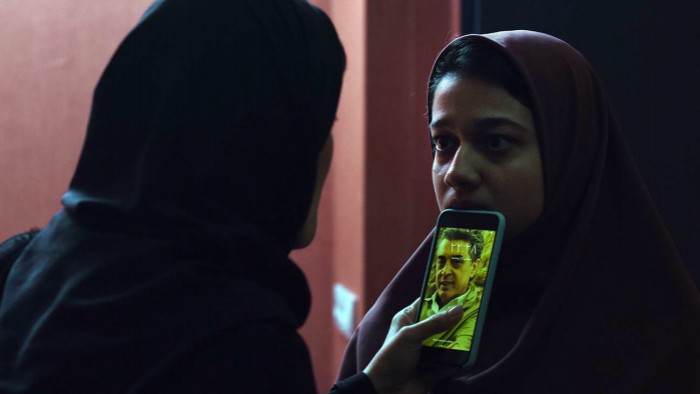
“…millions of viewers who will vote…how much the show’s sponsors will compensate her with blood money.”
But here comes the first twist, she is on this show to ask her stepdaughter, Mona (Behnaz Jafari), for forgiveness, and if granted, it will, in a way, legally cancel the death penalty. First, there are “dramatic” reconstructions and testimonies setting up the stage for an exchange between a cold and ruthless Mona and a very emotional Maryam. Then, after hearing Maryam plea, Mona will have to give her verdict live on-air, in front of millions of viewers who will vote and decide how much the show’s sponsors will compensate her with blood money.
A second twist arrives fast when we realize that there is some history between Nasser’s daughter and the younger Maryam. We discover that the two were close as children because Maryam’s father used to be Nasser’s driver. Maryam even considered Mona akin to an older sister, as the two grew close during that time. Like the popular entertainment show it portrays, Yalda, a Night for Forgiveness, is filled with twists or surprises for its viewers. Despite the gravity of its subject The Joy of Forgiveness even has celebrities on hand for musical or poetry intermission. It comes across as a mini-Iranian Idol.
Meanwhile, drama is happening backstage as well. Arguments between the producers, showrunners, and assistants raise the tension amongst all the other madness. We see various helpers and technicians making sure the show runs smoothly, and, interestingly, it seems 99% of the production staff are women. On top of that, an anxious couple in the studio lobby wait to speak with Maryam or her mother. The critical information they need to share will change everything for all involved.
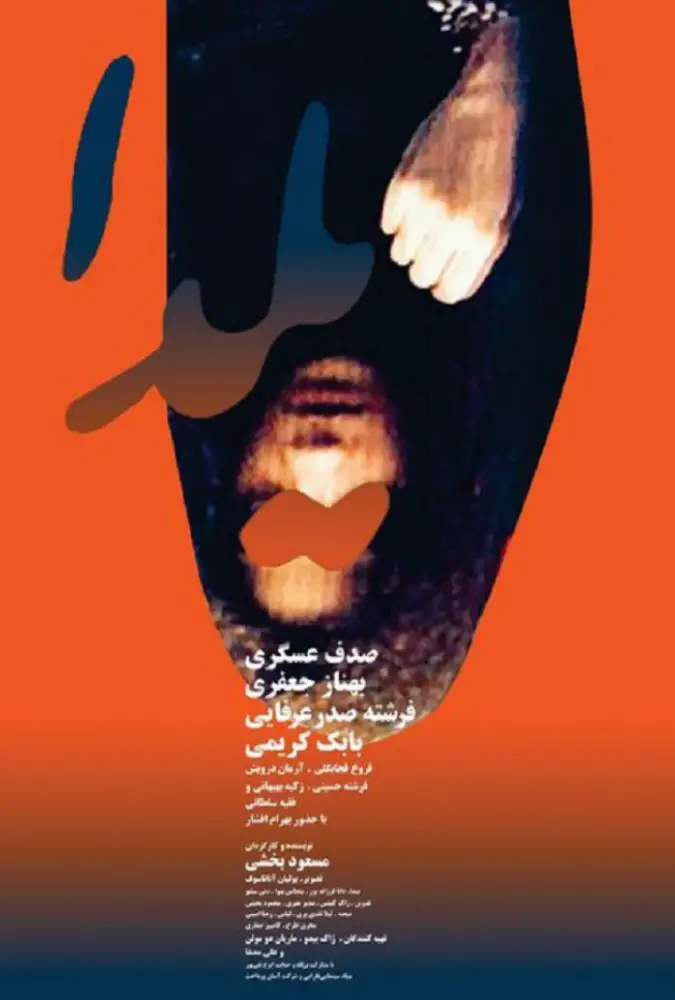
"…despite appearances, the villain of the story is...the exploitative nature of the media, and, of course, the patriarchal society."
